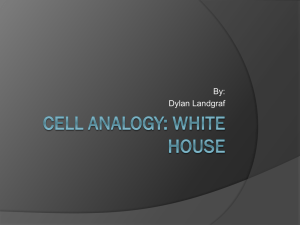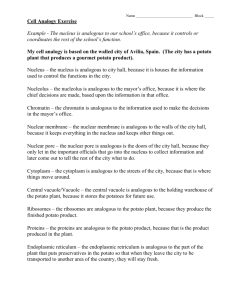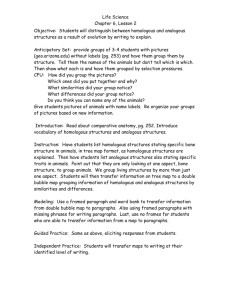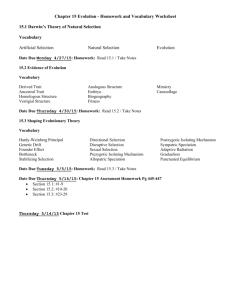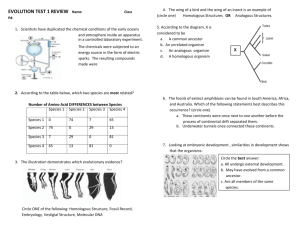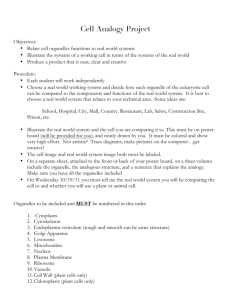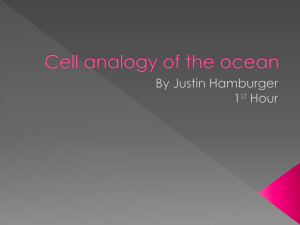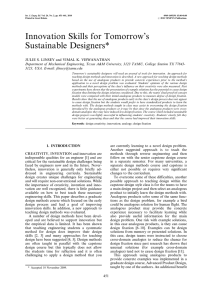zachb-cell
advertisement
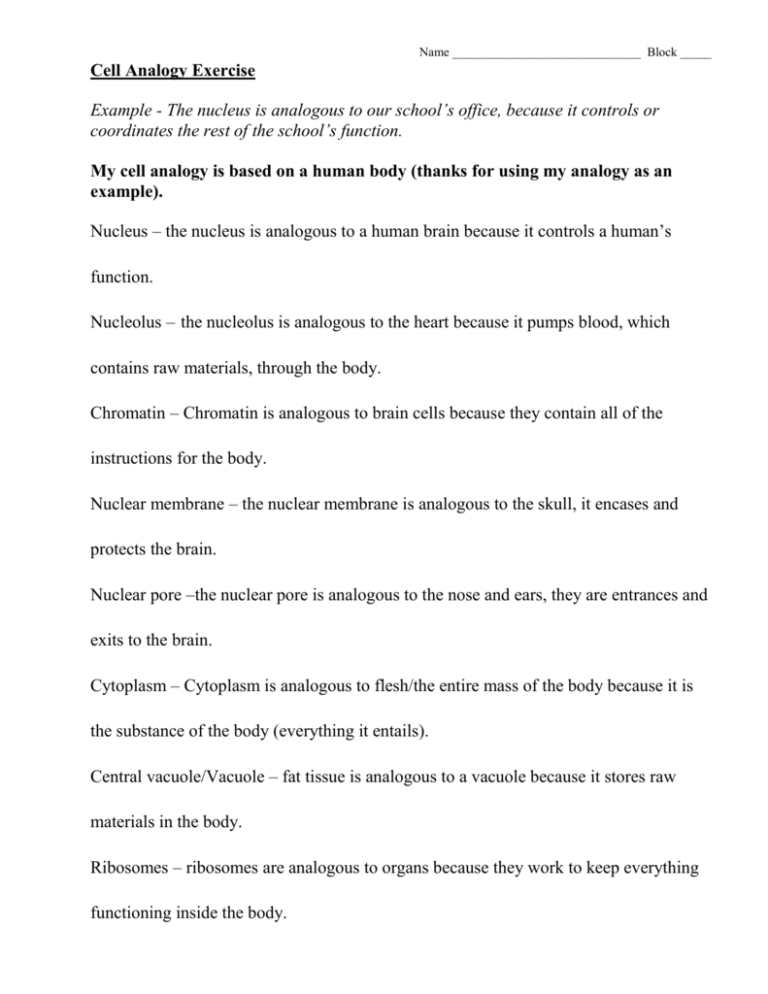
Name ______________________________ Block _____ Cell Analogy Exercise Example - The nucleus is analogous to our school’s office, because it controls or coordinates the rest of the school’s function. My cell analogy is based on a human body (thanks for using my analogy as an example). Nucleus – the nucleus is analogous to a human brain because it controls a human’s function. Nucleolus – the nucleolus is analogous to the heart because it pumps blood, which contains raw materials, through the body. Chromatin – Chromatin is analogous to brain cells because they contain all of the instructions for the body. Nuclear membrane – the nuclear membrane is analogous to the skull, it encases and protects the brain. Nuclear pore –the nuclear pore is analogous to the nose and ears, they are entrances and exits to the brain. Cytoplasm – Cytoplasm is analogous to flesh/the entire mass of the body because it is the substance of the body (everything it entails). Central vacuole/Vacuole – fat tissue is analogous to a vacuole because it stores raw materials in the body. Ribosomes – ribosomes are analogous to organs because they work to keep everything functioning inside the body. Name ______________________________ Block _____ Proteins – proteins are analogous to the various functions that are performed by the organs because they are the product of the organs’ function. Endoplasmic reticulum – the ER is analogous to the circulatory system/arteries and veins because they run through the whole body carying materials. Golgi apparatus – Golgi apparatus is analogous to the digestive system because it packages and repackages materials to exit the body. Vessel – vessels are analogous to poo because it is the object that carries the materials leaving the body. Lysosomes – the lysosomes are analogous to kidneys/liver, because they flush and filter any useless materials that are floating around. Mitochondria – the mitochondria is analogous to muscle because it is the “power house” of the body and burns energy necessary for function. Chloroplast – chloroplasts are analogous to eyes because they capture light energy. Plasma membrane – plasma membrane is analogous to the orifices of the body because they regulate what enters and exits for body. Cell wall – a cell wall is analogous to skin because it is the outside layer that forms the shape of the body.
